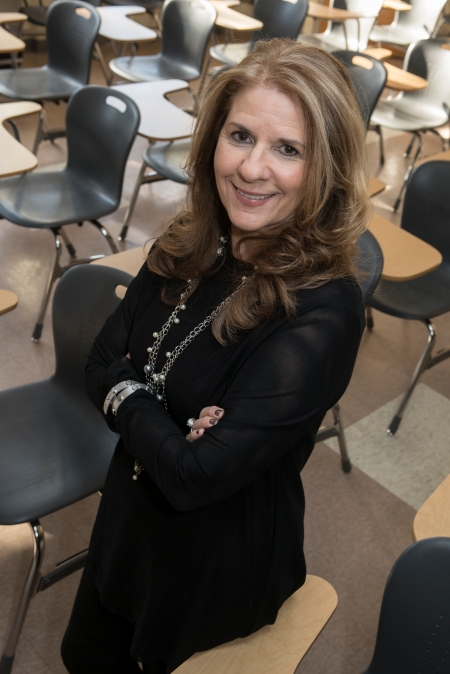
By
Lynch School of Education Professor Jacqueline Lerner has received a $1.9 million grant from the John Templeton Foundation for a three-year study focused on the moral development of children and teens.
The study builds on Lerner’s prior research into child and adolescent character and positive development. This time, she is particularly interested in the significance of self-control, or intentional self-regulation, and the importance of adult role models in the virtuous behavior of youth.
“We know that young people generally know the difference between right and wrong,” said Lerner, a professor of counseling, developmental, and educational psychology. “But what promotes the ability to actually do the right thing?”
Titled “Doing the Right Thing: Intentional Self-Regulation and the Promotion of Character Development,” the project will assess 900 students in the fifth, seventh and ninth grades.
Despite all of the early lessons about honesty, following the rules, and making decisions so they don’t harm themselves or others, youth often stray from virtuous behavior, said Lerner, who will serve as co-principal investigator on the grant with Tufts University Research Assistant Professor Edmond Bowers, PhD’09, a frequent collaborator and graduate of the Lynch School of Education.
What prevents children from living the moral lessons they’ve been taught? Lerner and her research team are exploring the positive influences and individual strengths that lead children to make good moral choices.
The answer may lie in self-control, or what Lerner and developmental psychologists refer to as intentional self-regulation – which includes the ability to understand the consequences of bad acts in advance and develop the skills to avoid the lure of poor choices.
Lerner is interested in how such internal strengths — which she calls “internal assets” — are shaped by external forces like parents, peers and teachers.
“When these internal assets and positive character exemplars line up in the lives of children, they have a good chance to develop positively,” said Lerner, who has conducted groundbreaking research on the topic with her husband, Richard M. Lerner, the Bergstrom Chair in Applied Developmental Science at Tufts. “We’d like to learn from the positive experiences involved in the moral development of children – what they are doing right – rather than focus on negative acts or decisions. We think there are some insights to be gained from this approach.”
Learning what helps children develop in a positive manner has long been a focus of Lerner’s research.
More than a decade ago, Lerner, her husband and a team of leading scholars launched a landmark study of positive youth development that was funded by the National 4-H Council. The 4-H Study of Positive Youth Development followed more than 7,000 adolescents in 42 states for eight years in an effort to define and measure positive youth development.
The research resulted in the team’s development of the “Five Cs” model of youth development, which stresses the importance of competence, confidence, connection, character and caring in the emotional, social and moral growth of children and adolescents.
Lerner’s new study will focus more specifically on character development and character exemplars and their links to self-control in moral decision-making and behavior. Exploring the relationships between youth and their moral role models may reveal how those kinds of interactions can be used to guide child development positively, she said.
“We want to understand who young people look up to — be they parents, teachers or other adults — and why and how those relationships shape youth development in this particular area,” said Lerner.
Ultimately, the researchers hope the study can provide the scientific evidence that will help parents, teachers, youth leaders, and mental health practitioners support the development of virtuous behavior and moral development in children and adolescents.
“If we can really show that intentional self-regulation promotes character development, we can then develop tools and interventions to help youth who are struggling in these areas,” Lerner said.
The study’s supporter, the John Templeton Foundation — formed by the late billionaire investor — sponsors scientific inquiry into some of life’s most pressing questions.



